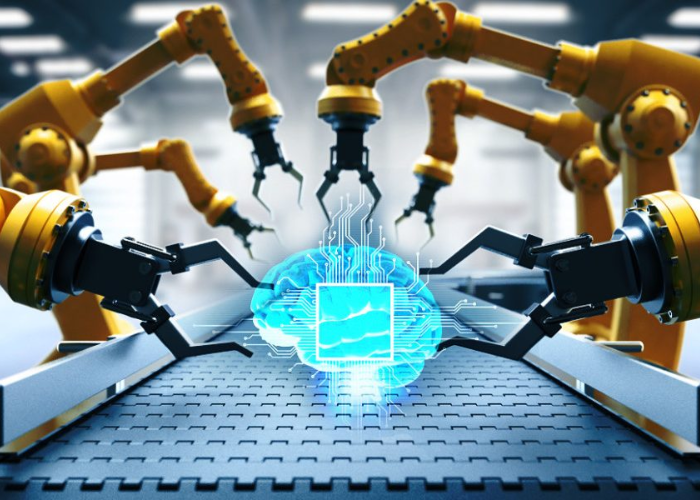In recent years, Artificial Intelligence (AI) has been gaining traction in a variety of industries. Sometimes, AI is even seen as a revolutionary force that will drastically change the way businesses operate. In this blog, we will explore the various aspects of Artificial Intelligence, such as what it is and how it is revolutionizing industries, as well as the benefits and challenges of AI for business. Ultimately, we will discuss how AI is changing the face of the business world and how it will shape the future.
What is Artificial Intelligence and How Is It Revolutionizing Industries?
Artificial Intelligence (AI) is a computer system that is designed to mimic human intelligence. It is capable of solving complex tasks such as recognizing objects, understanding human speech, and making decisions. AI is also capable of learning from its past experiences and adapting to new situations.
The main goal of Artificial Intelligence is to increase efficiency and reduce costs for businesses. AI can help automate mundane tasks, freeing up resources and allowing businesses to focus on more important tasks. In addition, AI can help businesses make better decisions based on data and analysis. AI can also be used to identify patterns in data and develop predictive models for the future.
The applications of Artificial Intelligence have been far-reaching, revolutionizing industries from healthcare to finance. In healthcare, AI is being used to diagnose diseases and process medical records. In finance, AI is being used for stock market analysis and fraud detection. AI is also being used in retail, manufacturing, and transportation. As AI continues to evolve and become more advanced, it will continue to revolutionize different industries.
Benefits of Artificial Intelligence for Business
There are many benefits of Artificial Intelligence for businesses. AI can help automate mundane tasks, such as data entry and customer service, freeing up resources and allowing businesses to focus on more important tasks. AI can also help businesses make better decisions based on data and analysis. AI can be used to identify patterns in data and develop predictive models for the future.
In addition, AI can help businesses with customer engagement. AI can be used to personalize customer experiences and provide personalized recommendations. AI can also be used to automate customer service, providing faster and more accurate responses.
Finally, AI can help businesses increase efficiency and reduce costs. AI can be used to automate mundane tasks, freeing up resources and allowing businesses to focus on more important tasks. AI can also help businesses make better decisions based on data and analysis.
Challenges of Artificial Intelligence for Business
Although Artificial Intelligence can be beneficial for businesses, there are also some challenges associated with it. One of the main challenges is the cost of implementing AI. AI requires large amounts of data, which can be expensive to acquire. In addition, AI requires powerful computers, which can also be expensive.
Another challenge is the lack of governance and regulation. AI can be used for a variety of tasks that may not be in accordance with certain ethical standards. As such, there needs to be a set of rules and regulations in place for AI to ensure that it is used responsibly.
Finally, AI can be unpredictable. AI systems are based on algorithms, which can be difficult to understand and predict. As such, there is always a risk that AI systems may make mistakes or unexpected decisions.
Conclusion
Overall, Artificial Intelligence has revolutionized many industries and will continue to do so in the future. AI can help businesses automate mundane tasks, make better decisions based on data and analysis, and increase efficiency and reduce costs. However, there are also some challenges associated with AI, such as the cost of implementation and the lack of governance and regulation. As AI continues to evolve and become more advanced, businesses will need to weigh the benefits and challenges associated with it in order to make an informed decision.




